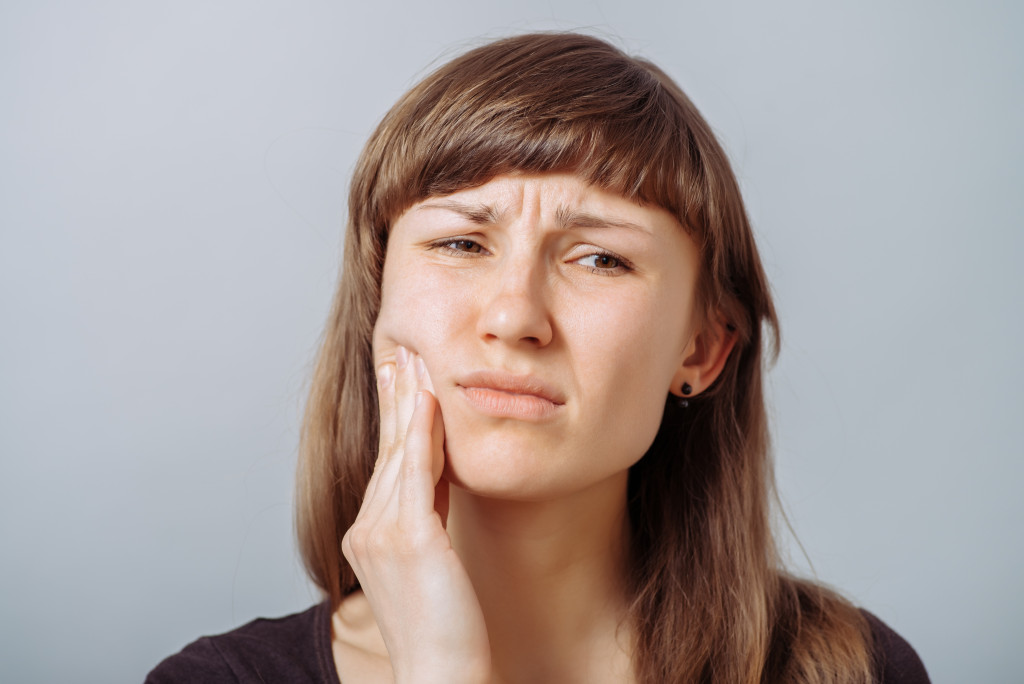- Gum disease is an infection of the gums and supporting tissues caused by poor oral hygiene.
- Smoking, hormonal changes, genetics, and medical conditions can increase the risk of gum disease.
- Regular dental cleanings, a healthy diet, quitting smoking, and replacing missing teeth can help prevent gum disease.
- Brushing and flossing twice daily help remove food particles that lead to plaque buildup.
- Regular dental check-ups are essential for monitoring oral health and preventing gum disease.
Oral health is essential to maintain overall health. Our oral hygiene practices and habits determine the level of our oral health. Gum disease is a common yet serious oral health issue that people of all ages suffer from. Here’s what you need to know about gum disease, its reasons, and how to prevent it.
What is Gum Disease?
Gum disease, or periodontal disease, commonly affects the tissues surrounding and supporting the teeth. It is primarily caused by bacterial infection and can range from mild inflammation of the gums (gingivitis) to more severe damage to the gums and underlying bone (periodontitis).
Poor Oral Hygiene Practices
Poor oral hygiene practices are the leading cause of gum disease. Brushing and flossing are essential components of dental hygiene. If you don’t brush and floss regularly, food particles in your mouth can turn into plaque and cause gum inflammation and eventual gum disease. To prevent gum disease, brush your teeth twice daily and maintain consistent flossing habits. Regular dental check-ups and teeth cleaning will also assist in maintaining good oral hygiene.

Tobacco Use
Tobacco is harmful not only to your lungs but also to your oral health. The chemicals in tobacco products, such as cigarettes and smokeless tobacco, lead to gum inflammation and increase the risk of gum disease. Smoking reduces oxygen flow throughout your body and slows the healing process, leading to a weak immune system and an increased risk of gum disease. Quitting smoking or using smokeless tobacco can help prevent gum disease and ultimately can help save your teeth and your life.
Hormonal Changes
Hormonal changes, such as puberty, pregnancy, and menopause, can increase the risk of gum disease. Dental hygiene is crucial, especially during these periods of hormonal changes. Hormonal fluctuations can alter how gums respond to the bacteria that cause periodontal infections. It is essential to consult your dentist about adequately maintaining gum health during these times.
Genetics
Did you know that gum disease can be hereditary? Even if you have excellent oral hygiene habits, your genetics can play a part in causing gum disease. Genes can increase the risk of gum disease, even in people who maintain good oral hygiene practices. If gum disease runs in your family, it is essential to let your dentist know so that they can monitor your oral health more carefully.
Medical Conditions
Certain medical conditions can increase the risk of gum disease. Conditions such as diabetes, cancer, and HIV can weaken your immune system, making fighting gum disease difficult. Medications taken to manage other health issues can also cause dry mouth, leading to an increased risk of gum disease. If you have a medical condition, you must talk to your dentist to work together to prevent gum disease.
Preventing Gum Disease
Thankfully, there are various ways to prevent gum disease. Here are four ways to prevent it:

Replace Missing Teeth
Missing teeth can put a lot of stress on your remaining teeth, leading to gum disease. This is why you need to robust replacement tooth for your missing teeth. The tooth is made of strong and durable material, providing a stable fit to support the gum line.
Maintain a Healthy Diet
A healthy diet helps keep your body and your mouth healthy. Eating lots of fruits and vegetables will increase the amount of vitamins and minerals that help protect against gum disease. Additionally, limit sugary snacks as they can lead to plaque buildup and an increased risk of gum disease.
Quit Smoking
Quitting smoking is one of the most effective ways to prevent gum disease. The harmful chemicals in tobacco products can cause inflammation of the gums, leading to a higher chance of developing periodontal diseases. Quitting smoking can help you combat this issue.
Regular Dental Visits
Regular dental visits are essential for keeping your oral health in check. During these visits, your dentist will perform cleanings and examine your mouth for any signs of gum disease or other issues that could indicate potential problems. Regular dental visits will ensure you stay on top of your oral hygiene and keep gum disease at bay.
Gum disease is a serious condition that should not be taken lightly. However, you can take steps to prevent it and maintain good oral health. Brush and floss regularly, limit sugary snacks, quit smoking, replace missing teeth where necessary, and visit the dentist regularly for check-ups. Doing so will help ensure that your gums stay healthy and strong!

